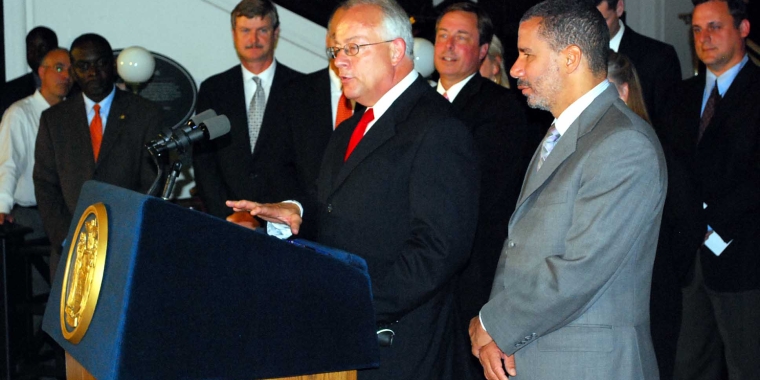Historic Rehabilitation Tax Credit Brings Redevelopment & Jobs to NY
July 30, 2009
-
ISSUE:
- Economic Development

July 29, 2009
HISTORIC REHABILITATION TAX CREDIT BRINGS REDEVELOPMENT & JOBS TO NY
Historic buildings throughout the community that have fallen into disrepair have a new lease on life Wednesday after legislation sponsored by Senator William Stachowski (D-58th) was signed into law by Governor David Paterson.
The Senate’s Historic Rehabilitation Tax Credit (S2960-B) establishes a nationally competitive rehabilitation and preservation program that will benefit property owners and communities who seek to renovate run down and dilapidated buildings.
The program is designed to attract new investment, businesses, and jobs at a time when state legislators are working to get our economy back on track. The legislation increases the value of tax credits available to developers and investors for residential and commercial properties with funds targeted to “distressed” areas.
"The Historic Rehabilitation Tax Credit is a smart economic development program that will stimulate growth, increase property values, create jobs, and provide a better quality of life for everyone in the community,” said Senator Stachowski. “Senate Democrats’ number one priority has been making our economy strong again, and the credit will help us achieve that.”
This legislation gives New York State one of the most productive and cost-effective redevelopment programs in the country. The program:
• Raises the value of the tax credit from $100,000 to $5 million on commercial property; the residential credit value will increase from $25,000 to $50,000.
• Targets “distressed” areas, which is defined as being located within a Census tract identified at or below one hundred percent of the median family income.
• Increases the percentage of rehabilitation costs which can be claimed for the credit, from 6-percent to 20-percent.
• Allows tax credits to be transferred, making it easier to attract investors and out-of-state financing for in-state rehabilitation projects.
The senator noted that virtually every community across the state is home to a number of historic buildings that are currently vacant, underutilized, and deteriorating. Right here in Buffalo and western New York there are a number of buildings that could be renovated or restored because of this program.
Share this Article or Press Release
Newsroom
Go to NewsroomIt's About The Property Taxpayer
April 19, 2006